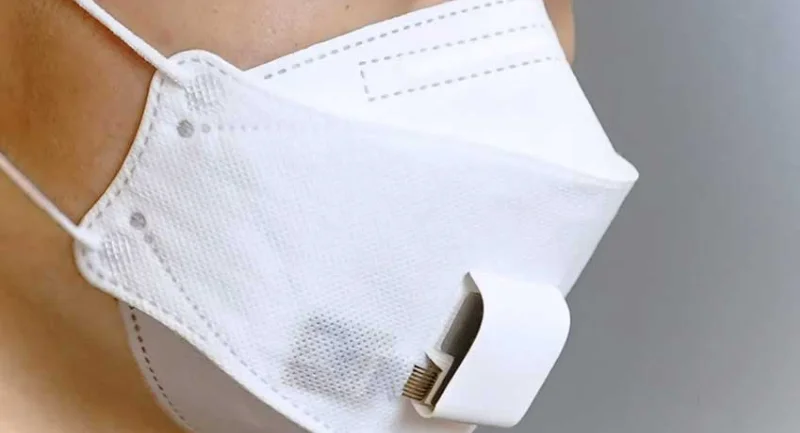
A groundbreaking innovation in the world of healthcare technology, a new smart mask has been developed to track indicators of asthma and kidney disease through breath analysis. This cutting-edge device represents a significant leap forward in non-invasive health monitoring, offering a new way for individuals to manage chronic conditions and detect potential health issues early.
The Science Behind the Smart Mask
The smart mask is designed to analyze the chemical composition of a person’s breath, detecting biomarkers that are indicative of various health conditions. Breath analysis has long been considered a promising area for non-invasive diagnostics, as it can provide real-time information about a person’s metabolic processes and overall health.
The mask is equipped with advanced sensors that can detect specific compounds in the breath that are associated with asthma and kidney disease. For example, elevated levels of nitric oxide in the breath can indicate inflammation in the airways, a common symptom of asthma. Similarly, the presence of certain volatile organic compounds (VOCs) can be a marker of kidney dysfunction.
By continuously monitoring these biomarkers, the smart mask can provide users with valuable insights into their health, allowing them to take proactive steps to manage their conditions.
Practical Applications and Benefits
One of the key advantages of the smart mask is its ability to provide continuous monitoring in a non-invasive manner. For asthma patients, this means they can track their lung function throughout the day, helping them to identify triggers and manage their condition more effectively.
For individuals with kidney disease, the mask offers a way to monitor their health without the need for frequent blood tests or other invasive procedures. Early detection of changes in kidney function can lead to timely interventions, potentially slowing the progression of the disease and improving outcomes.
The smart mask also has potential applications beyond asthma and kidney disease. Researchers are exploring its use in detecting other conditions, such as diabetes, lung cancer, and even COVID-19. As the technology continues to evolve, the smart mask could become a versatile tool for a wide range of health monitoring needs.
Integration with Healthcare Systems
The data collected by the smart mask can be seamlessly integrated with digital health platforms, allowing users to share their health information with healthcare providers in real time. This integration can lead to more personalized and proactive care, as doctors can monitor their patients’ health remotely and adjust treatment plans as needed.
For example, an asthma patient using the smart mask could have their data automatically uploaded to a cloud-based platform, where their doctor can review it and make recommendations based on the patient’s current condition. This level of connectivity could revolutionize the way chronic conditions are managed, making healthcare more efficient and accessible.
Challenges and Future Directions
While the smart mask represents a significant advancement in health monitoring, there are still challenges to overcome. Ensuring the accuracy and reliability of the sensors is critical, as false readings could lead to unnecessary worry or missed diagnoses. Additionally, the mask must be designed to be comfortable and easy to use, as user compliance is essential for continuous monitoring.
Privacy concerns are another important consideration, as the mask collects sensitive health data. Manufacturers must ensure that the data is securely encrypted and that users have control over who can access their information.
Looking ahead, the development of the smart mask is likely to spur further innovation in the field of wearable health technology. As researchers continue to refine the sensors and algorithms, the potential applications of the mask could expand, making it a valuable tool for a wide range of health conditions.
